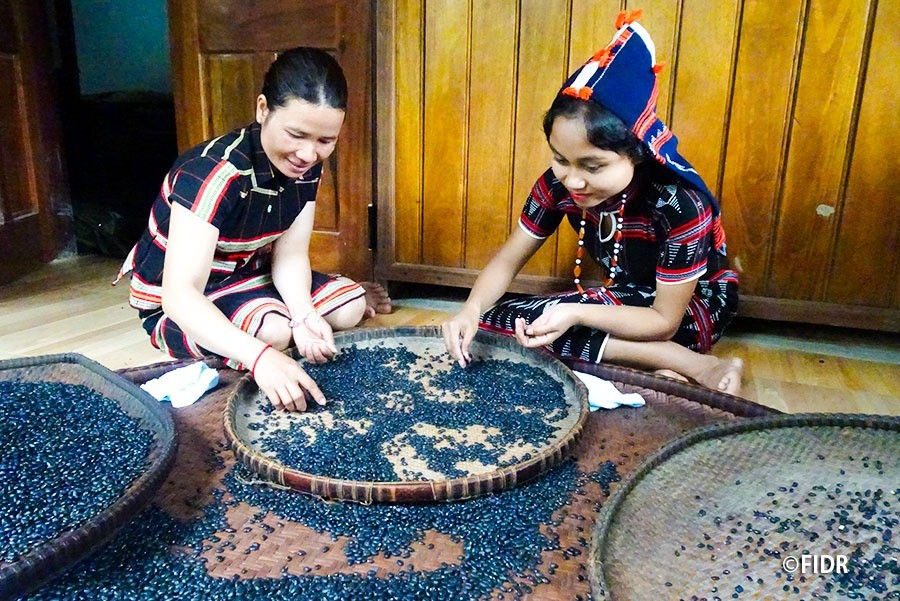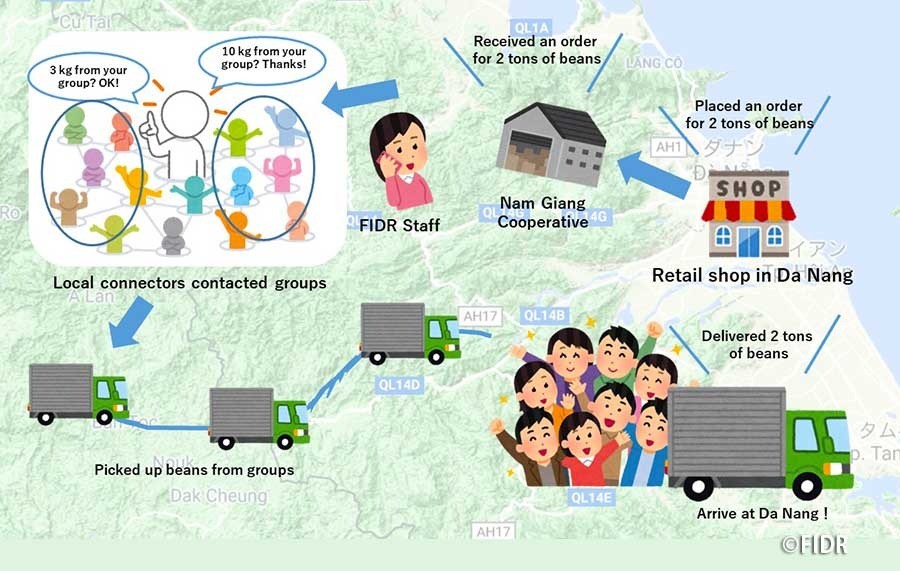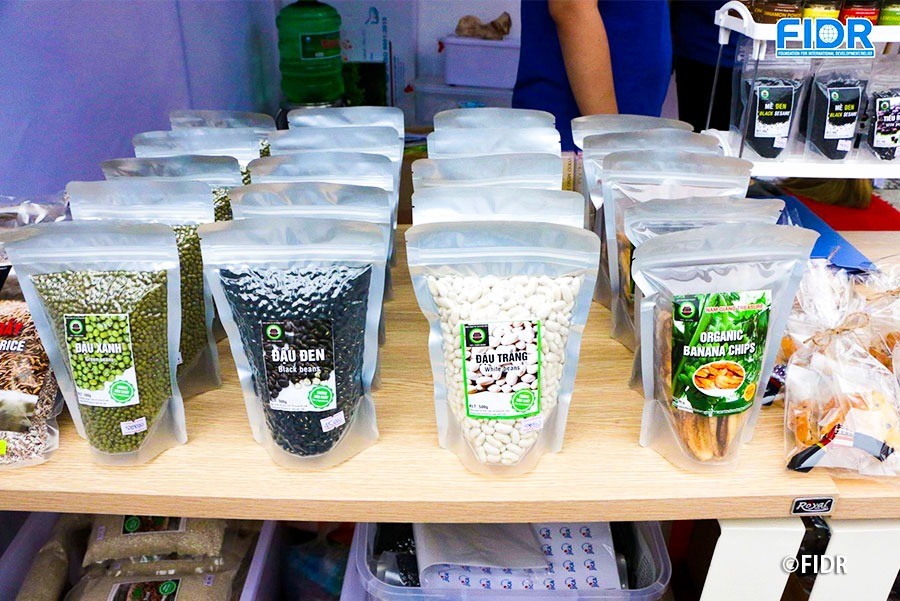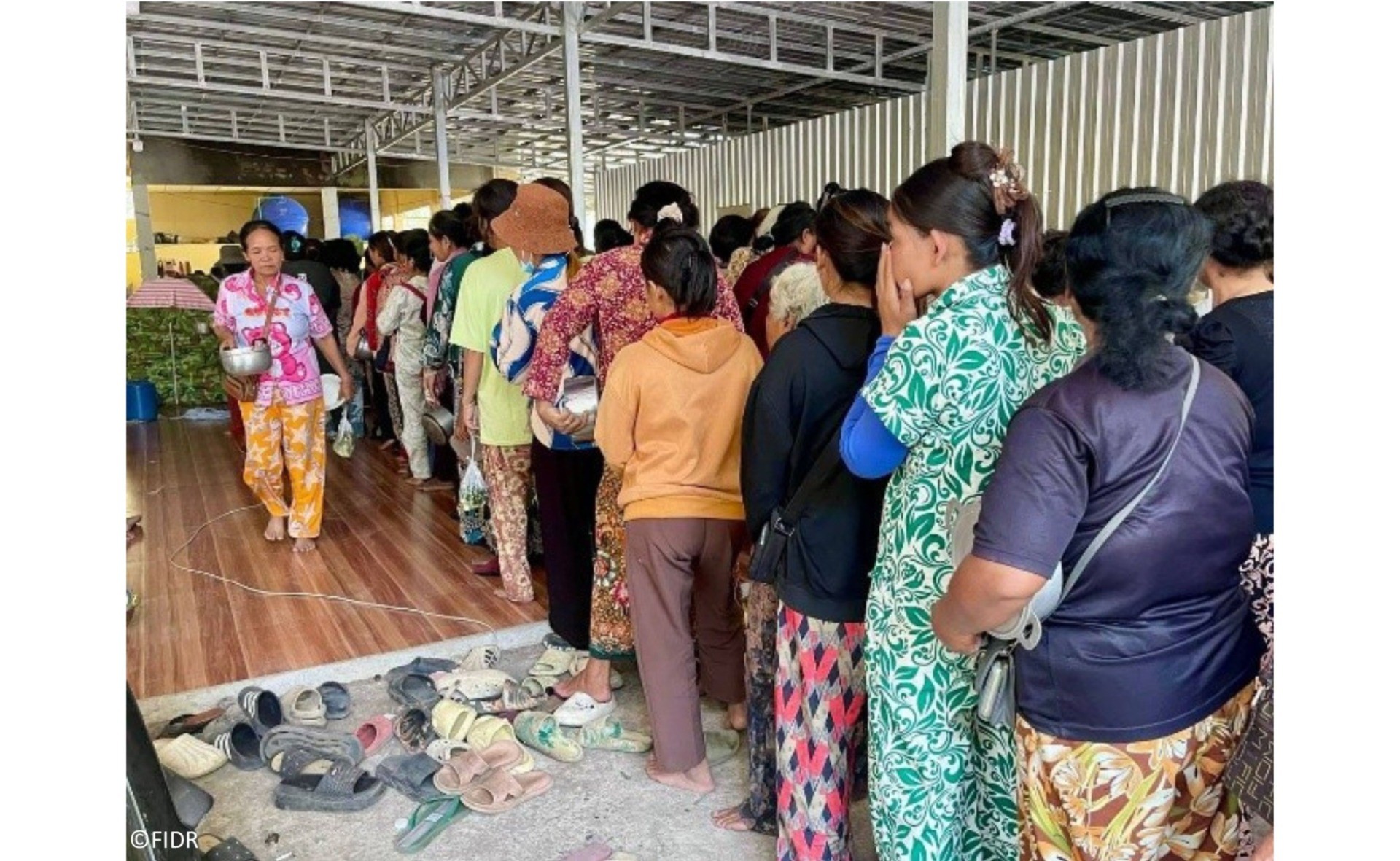Kill ten birds with one stone!!–Bring about significant impact from small input– Vol.2

Super collaboration in bringing products to markets under COVID–19
The spread of COVID–19 occurred unexpectedly from this spring and it has obviously affected our project site. However, in this situation, it was revealed that people in the project sites are strongly banded and the logistics system fostered in the project properly functions even in case of emergency.
Every spring, many students and tourists have visited Nam Giang district to join “Cotu ethnic Tour”– a full–day sightseeing tour to experience the lifestyle and abundant nature of Cotu ethnic minority people. However, due to the effects of COVID–19, all reservations have been cancelled this year. Earning from the tour has accounted for most of the revenue of Nam Giang– Cotu Community–Based Tourism Cooperative, which is the organization taking responsibility for running the tour and receiving orders of local products in Nam Giang district. It was unavoidable that the revenue of the Cooperative has decreased and so as the income of local people in this severe situation.
In late March, when Vietnam was under nationwide lockdown, FIDR staffs received a phone call from the Cooperative. “Really? Did you receive an order of 2 tons of beans?!”
Before the lockdown due to COVID–19, people tried to hoard food. Under the circumstances, the agricultural products shop in Da Nang which started the business with the Cooperative received orders not only from Da Nang city but also from several shops in Hanoi and Ho Chi Minh City, resulting in an unprecedented amount of orders.
Upon receiving this order, with the support from FIDR staffs, the Cooperative and community connectors, who are responsible for coordination among villagers, immediately made contact with people in different villages to collect the beans. The villagers removed foreign objects, selected and polished the beans as they usually practiced in the training sessions of the project. After that, the community connectors rented a car to pick up packages of bean from each village and delivered them to Da Nang city. Because of the super collaborative play, the products have been delivered by the delivery date.

“A local supply chain” in the mountainous area which enabled the delivery of 2 tons of beans
The keys for this success were “the close cooperation between the Cooperative and community connectors”, and “an invisible supply–chain system” stretching like a spider web from a small village in the hinterland of Nam Giang district which has been developed through this project. From the beginning of the project, FIDR has conducted trainings to local people on the way of producing and selling not only agricultural products but other local specialties such as traditional weaving, forest products, basket products, and sightseeing tours. Through the training, local people can handle with large quantity of products, from 50kg to 100kg, 300kg, and involving more people in the process. These efforts of the people were showed off in the final year of the project.

Beans are displayed in retail shops.
Ms. Otsuki, Country Representative of FIDR Vietnam office, who has also been manager of this project said: “Seeing the performance of local people, I strongly felt that it was time for them to be independent without support of FIDR during more than 15 years. Through this project, I have learned that by discovering and utilizing the strengths of local people and connecting them into a team, they can create a remarkable success. So we can achieve not only “two birds with one stone” but “ten birds with one stone”. During this few months, the Cooperative has been receiving orders of not only beans, but also of other agricultural products constantly. As a result, the sales amount in first half of 2020 has already exceeded the total sales amount of the previous year.
Other Activity Reports
-
Emergency Relief for Displaced People in Cambodia

2026.01.30
Needs Assessment for Emergency...
Cambodia Emergency Response and Rehabilitation Assistance -
Kampong-Leng Livelihood Improvement Project

2025.12.12
The Community's Initial Effort...
Cambodia Health anbd Hygiene International Cooperation for Social Development
DONATION
Your generous donation now will have impacts
on children and communities in our fields.














